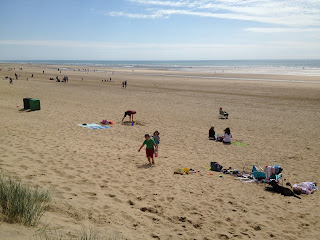Could
tapping into skills associated with Social Intelligence help with preparing
your child for the eleven plus examinations? On the day of the examination you
want your child to be gifted and unique. You want the finished article.
Instead
of help your child concentrate on working through eleven plus papers what about
trying to build confidence in the areas of empathy, resilience, curiosity and
creativity? When you child sits down at the desk in the examination room you
want your child to feel confident and positive.
“If
you pass the eleven plus we will all go to Florida.”
“If
you pass you can have a new bicycle.”
“If
you pass we will go out for a nice meal.”
Some
parents will resonate with the idea of encouraging their children to do well
but other would prefer their child to acquire good study skills, sound
pre-examination nutrition, learn when to take rests and how to enjoy recreation.
Suppose
your child was able to enter the examination without feeling unduly anxious.
Imagine a child who was able to say, “Don’t worry, I will just do my best.
Thank you for all your support and hard-work. The examination, now, is up to
me.”
The
sceptics will argue, “How can we test the happiness of an eleven plus child?” A
different question could ask, “Why shouldn’t we label a child as having grammar
school potential?” The present state of the eleven plus can provide some of the
answers – but cannot hope to satisfy everyone.
One
remarkably powerful element of Social Intelligence must be empathy. A question
for learned: Was Meryl Streep talking about the eleven plus when she said: “The
greatest gift of human beings is that we have the power of empathy.”








